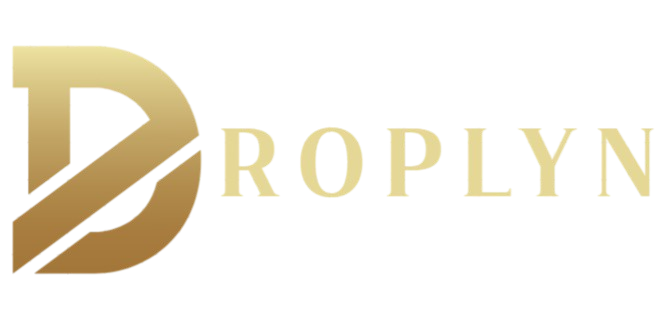TECHNOLOGY
Navigating the Waters of Ocean of PDF

In today’s digital age, access to information has never been more crucial or widespread. One platform making waves in this arena is Ocean of PDF. Whether you’re a student in need of textbooks or an avid reader searching for your next favorite novel, Ocean of PDF offers an expansive library at your fingertips. But what exactly is Ocean of PDF, and how can you make the most of its offerings? This blog post dives deep into the world of Ocean of PDF, exploring its features, benefits, and how it fits into the broader landscape of digital reading.
What is Ocean of PDF?
Ocean of PDF is an online platform where users can download PDF versions of books across various genres. From fiction to academic texts, it provides a wide array of reading materials without the need for physical copies. This digital library is a treasure trove for anyone who loves reading but prefers the convenience of electronic formats.
The appeal of Ocean of PDF lies in its vast collection and user-friendly interface. Readers can easily search for titles, authors, or genres and discover new books at no extra cost. This accessibility is especially beneficial for those who might not have easy access to physical bookstores or libraries.
While Ocean of PDF offers an impressive range of books, it’s essential to understand how the platform fits into the legal and ethical aspects of book distribution. We’ll explore these considerations later in the post to provide a comprehensive view of Ocean of PDF’s role in the digital reading ecosystem.
How to Access Ocean of PDF
Once you’ve decided to explore Ocean of PDF, the process of accessing it is quite straightforward. All you need is an internet connection and a device capable of reading PDFs, such as a smartphone, tablet, or computer. Simply visit the Ocean of PDF website and start your search for the book you desire.
Ocean of PDF’s search feature allows you to find books by title, author, or genre. This makes it easy to locate specific books or discover new ones based on your interests. Once you find a book you want, downloading it to your device is just a click away.
However, it’s important to note the potential security risks associated with downloading files from any online platform. Always ensure your antivirus software is up-to-date to protect your device from malicious downloads.
The Benefits of Using Ocean of PDF
Ocean of PDF offers several benefits that cater to the needs of modern readers. Firstly, its extensive collection of titles ensures that users can find books that suit their preferences, whether they’re interested in the latest bestseller or an obscure academic text. This diversity makes it a valuable resource for readers with varied tastes.
Another significant advantage is the convenience of having a library at your fingertips. With Ocean of PDF, you can carry thousands of books on a single device, making it easier to read on the go. This portability is particularly beneficial for students and professionals who travel frequently and need access to their reading materials.
Lastly, Ocean of PDF provides an opportunity for readers to engage with literature without the financial barrier of purchasing books. This can be especially advantageous for individuals on a tight budget, offering them access to knowledge and entertainment that might otherwise be out of reach.
The Legal and Ethical Considerations
While Ocean of PDF is a useful platform, it’s important to address the legal and ethical concerns associated with it. Many of the books available on Ocean of PDF are shared without the explicit permission of the authors or publishers, which raises issues related to copyright infringement.
Reading and downloading books from Ocean of PDF may contribute to the unauthorized distribution of copyrighted material. This can impact authors and publishers who rely on sales and royalties for their livelihood. It’s crucial for readers to be aware of these implications and consider the ethical side of accessing free content.
Some readers may choose to use Ocean of PDF as a way to preview books before purchasing them legally or borrowing them from a library. This approach allows individuals to support the creators while still enjoying the convenience of digital access.
Alternatives to Ocean of PDF
For those seeking legal alternatives to Ocean of PDF, there are several options available. Public libraries often offer digital lending services, allowing users to borrow e-books legally and for free. Platforms like Over Drive and Libby facilitate this process, providing access to a wide range of titles.
Additionally, subscription services like Amazon Kindle Unlimited or Scribd offer affordable access to a vast library of e-books, audiobooks, and more. These services provide a legal means of reading digitally while supporting authors and publishers.
Some authors also offer free or discounted e-books through promotions, newsletters, or platforms like Project Gutenberg, which features public domain works. Exploring these alternatives can provide readers with a wealth of content while respecting copyright laws.
How Ocean of PDF Affects the Publishing Industry
The existence of platforms like Ocean of PDF has sparked debates within the publishing industry. On one hand, they increase access to literature, enabling more people to engage with books they might not have otherwise encountered. This exposure can sometimes lead to increased demand for an author’s work.
On the other hand, unauthorized distribution affects sales and royalties, potentially reducing the incentive for writers to create new content. Publishers and authors are constantly seeking ways to adapt to the digital age, balancing accessibility with fair compensation for creative work.
These challenges highlight the need for ongoing dialogue between readers, authors, and publishers to find solutions that meet the needs of all parties involved.
Tips for Using Ocean of PDF Responsibly
If you decide to use Ocean of PDF, there are steps you can take to do so responsibly. Consider using the platform to discover new authors and titles, then support them by purchasing their work legally or borrowing it from a library. This approach allows you to explore literature while also contributing to the sustainability of the publishing industry.
Be mindful of the potential legal risks involved in downloading copyrighted material without authorization. Educate yourself about copyright laws in your region and make informed decisions about how you access digital content.
Finally, share your newfound knowledge with others. Encourage fellow readers to consider the ethical implications of their reading habits and explore legal alternatives whenever possible.
The Future of Digital Reading
The rise of digital reading platforms like Ocean of PDF reflects broader trends in how we consume content. With the proliferation of e-books and audiobooks, readers now have more options than ever before. These changes are shaping the future of reading, making it more accessible, diverse, and dynamic.
As technology continues to evolve, so too will the ways in which we interact with literature. It’s an exciting time for both readers and creators, as new possibilities emerge for storytelling, engagement, and community building.
Being informed and responsible in our reading choices ensures that we can continue to enjoy these advancements while supporting the creators who bring stories to life.
Conclusion
Ocean of PDF offers a glimpse into the future of reading, where access to literature is easier and more widespread than ever before. While it provides undeniable benefits in terms of convenience and variety, it’s important to consider the legal and ethical implications of using such platforms.
By exploring legal alternatives and supporting authors and publishers, readers can enjoy the vast world of books while fostering a sustainable and equitable publishing industry. Whether you choose to use Ocean of PDF or other digital reading platforms, the key is to stay informed, responsible, and engaged in the ongoing conversation about the future of reading.
TECHNOLOGY
Internet Chicks The Unseen World of Virtual Poultry

In the vast expanse of the digital universe, where social media trends and viral content rule the day, a fascinating and often overlooked phenomenon is taking center stage—Internet chicks. These aren’t your everyday barnyard fowl; they are virtual, digital, and sometimes even robotic representations of poultry that have captivated netizens worldwide. This blog post will explore the world of Internet chicks, shedding light on their origins, cultural impact, and how they are redefining our relationship with nature in the digital age. Whether you’re a tech enthusiast, a cultural observer, or just someone curious about the latest digital trends, this exploration promises insights and entertainment.
The Birth of Virtual Poultry
Virtual poultry began as fun computer graphics in the early days of the internet. Back then, only a few people could create pixelated bird versions, mostly for fun or inside jokes. These early creations were simple, lacking the lifelike qualities of today’s digital counterparts, but they laid the groundwork for what was to come. The advent of more powerful computers and sophisticated software allowed for the creation of more realistic and interactive digital chicks. Artists and developers began using these tools to craft intricate and engaging poultry characters, each with its own personality and appeal, leading to their popularity today.
Their rise in popularity can be attributed to the increasing accessibility of technology. With more people gaining access to computers and the internet, the audience for digital content expanded rapidly. This wider reach encouraged creators to innovate, leading to the development of more complex and engaging virtual poultry. Today, these digital chicks are a staple in online games, animations, and social media platforms, captivating audiences with their charm and interactivity.
The Cultural Impact of Internet Chicks
Internet chicks have become cultural icons, often appearing in memes and viral videos that spread across the globe. Their playful nature and universal appeal make them perfect subjects for humorous and light-hearted content, capturing the hearts of millions. This widespread popularity has resulted in Internet chicks becoming symbols of joy and positivity in the digital world. They represent a break from the seriousness of everyday life, providing a moment of levity and entertainment for viewers of all ages.
Beyond entertainment, Internet chicks have influenced fashion, art, and even language. Designers often incorporate these digital birds into clothing and accessories, creating a unique blend of technology and style. Meanwhile, artists draw inspiration from their vibrant colors and lively personalities, incorporating them into paintings, sculptures, and other creative works. Additionally, phrases like “chick it out” or “that’s chicken” have entered the vernacular, showcasing the influence of these virtual poultry on everyday speech.
Furthermore, Internet chicks have spurred discussions on animal rights and digital ethics. People are increasingly questioning the portrayal of animals in digital media and the impact of such representations on our perceptions of real-life animals. This dialogue has led to greater awareness of animal welfare issues, prompting individuals and organizations to advocate for ethical treatment of animals both online and offline.
Digital Chickens in Gaming
The gaming industry has embraced Internet chicks, incorporating them into a variety of genres and styles. From casual mobile games to complex role-playing adventures, digital chickens offer unique challenges and experiences for players. Their presence enhances gameplay, adding an element of fun and unpredictability that keeps players engaged. Game developers use these digital birds to create dynamic and interactive environments, where players can interact with them in meaningful ways.
One popular example of digital chicks in gaming is the “Chicken Invaders” series, a space shooter game where players battle waves of attacking chickens. The game’s humor and fast-paced action have made it a favorite among gamers, demonstrating the appeal of Internet chicks in the gaming community. Other games, like “Stardew Valley” and “Minecraft,” feature chickens as farm animals that players can raise, providing a more relaxed and nurturing experience.
The inclusion of Internet chicks in gaming has also led to the development of new technologies and techniques. Game developers continually push the boundaries of what’s possible, creating more realistic and interactive digital chickens that enhance the overall gaming experience. As technology advances, we’ll likely see even more innovative uses of Internet chicks in the gaming world.
The Role of Social Media
Social media platforms have played a significant role in the rise of Internet chicks, providing a space for creators to share their work and connect with audiences. Platforms like Instagram, TikTok, and YouTube showcase countless videos and images of digital chickens, attracting millions of views and likes. These platforms offer a global stage for creators to showcase their talent and creativity, reaching audiences far beyond their local communities.
Internet chicks on social media have sparked trends and challenges, encouraging users to create and share their own poultry-inspired content. From “Chicken Dance” videos to virtual chick adoption challenges, these trends foster a sense of community and creativity among users, bringing people together through shared interests and experiences. The interactive nature of social media allows users to engage with content in new and exciting ways, further enhancing the appeal of Internet chicks.
Social media has also facilitated collaboration between creators, leading to the development of new and innovative digital chicken content. Artists, animators, and musicians work together to create multimedia projects that capture the essence of Internet chicks, pushing the boundaries of what’s possible in the digital realm. These collaborations result in unique and captivating content that continues to captivate audiences worldwide.
Educational Applications
The educational potential of Internet chicks is immense, offering engaging and interactive learning experiences for students of all ages. Digital chickens can be used to teach various subjects, from biology and ecology to art and design, making learning fun and accessible. The interactive nature of virtual poultry allows students to explore concepts in a hands-on way, fostering curiosity and creativity.
Educators have developed a range of digital resources that incorporate Internet chicks, including interactive lessons, games, and simulations. These resources provide students with a deeper understanding of complex topics while keeping them entertained and engaged. By using digital chickens in the classroom, teachers can create a dynamic and immersive learning environment that encourages exploration and discovery.
The use of Internet chicks in education also promotes digital literacy and critical thinking skills. Students learn to analyze and interpret digital content, developing the skills necessary to navigate an increasingly digital world. This focus on digital literacy prepares students for future challenges, equipping them with the knowledge and skills needed to succeed in the modern world.
The Future of Internet Chicks
The future of Internet chicks is bright, with endless possibilities for innovation and growth. Advances in technology and artificial intelligence will lead to even more realistic and interactive digital poultry, enhancing their appeal and functionality. Virtual and augmented reality will allow users to interact with Internet chicks in new and exciting ways, creating immersive experiences that blur the line between the digital and physical worlds.
The continued evolution of Internet chicks will likely lead to new applications and opportunities, from virtual pet adoption to interactive storytelling. These developments will provide users with even more ways to engage with and enjoy digital chickens, ensuring their place as beloved digital icons. As technology continues to advance, Internet chicks will remain at the forefront of digital innovation, captivating audiences with their charm and versatility.
The growing popularity of Internet chicks will also lead to increased collaboration and cross-industry partnerships. Creators from various fields will work together to develop new and exciting content, pushing the boundaries of what’s possible in the digital realm. These collaborations will result in innovative and captivating experiences that continue to engage and entertain audiences worldwide.
Conclusion
Internet chicks have become a fascinating and influential aspect of our digital culture, capturing the hearts and imaginations of people worldwide. Their playful nature and universal appeal make them ideal subjects for entertainment, education, and even social change. As we continue to explore the potential of digital technology, Internet chicks will remain at the forefront of innovation, providing endless opportunities for creativity and connection.
Whether you’re a seasoned digital enthusiast or a curious newcomer, the world of Internet chicks offers something for everyone. From gaming and social media to education and beyond, these virtual poultry are redefining our relationship with nature and technology, paving the way for a more connected and interactive world. With their unique blend of charm and versatility, Internet chicks are sure to remain beloved digital icons for years to come.
TECHNOLOGY
Mastering Google Voice Verification Code for Seamless Security

In today’s digital age, online security is more critical than ever. With cyber threats constantly evolving, safeguarding your personal information is paramount. One tool that has become indispensable in maintaining online security is the Google Voice verification code. This blog post will demystify what Google Voice verification codes are, their role in enhancing security, and how you can master their use for a seamless, secure online experience.
Understanding Google Voice Verification Codes
Google Voice verification codes function as a security measure, ensuring that only authorized users gain access to certain services. They act as a second layer of defense—known as two-factor authentication (2FA)—aiming to fortify your online accounts beyond just passwords. With 2FA, even if someone has your password, they’ll need the verification code to access your account successfully.
These codes are typically sent to your registered device, serving as a digital gatekeeper, verifying your identity. It’s an effective way of preventing unauthorized access, which is especially crucial for services like banking, email, and social media that store sensitive information. Google Voice is one of the popular methods for receiving these codes because it allows you to separate your verification messages from your primary phone number.
How Google Voice Verification Works
When you sign up for or log into a service that uses Google Voice verification, you’ll often be prompted to enter a verification code. This code is sent to your Google Voice account, where you can retrieve it and input it into the service’s authentication field. The process is straightforward, relying on the premise that only the rightful owner of the account will have access to the Google Voice number associated with it.
The benefit of this system is its simplicity and accessibility. By using Google Voice, you can receive codes even if you’re traveling abroad or don’t have access to your primary phone number. This flexibility ensures that you can always access your accounts securely, no matter where you are. The convenience of receiving codes via Google Voice also means you can manage your communications more effectively, consolidating messages and calls in one app.
Setting Up Google Voice for Verification
To start using Google Voice for verification, you first need to set up a Google Voice account. Visit the Google Voice website or download the app on your smartphone. Follow the setup instructions, which include linking a phone number, selecting your Google Voice number, and setting your preferences. Once your account is active, you can choose to use it for verification codes by updating your digital accounts to route verification messages to your Google Voice number.
After setup, integrating Google Voice with your accounts is simple. Navigate to your account settings, locate the security or two-factor authentication section, and add your Google Voice number. Ensure that you verify this number so that your account services recognize it as a valid contact method. This setup allows you to receive all your verification codes through Google Voice, keeping them organized and easily accessible.
Benefits of Using Google Voice Verification
One of the foremost benefits of using Google Voice for verification is enhanced security. By utilizing two-factor authentication, you significantly reduce the risk of unauthorized access to your accounts. Even if someone manages to obtain your password, they won’t have access to the verification code sent to your Google Voice, keeping your information safe.
Additionally, Google Voice offers a level of flexibility and convenience that’s hard to beat. Because it operates over the internet, you can receive your verification codes from anywhere, as long as you have an internet connection. This aspect is particularly useful for frequent travelers or individuals who maintain a digital nomad lifestyle. The ability to manage all your messages and calls through a single app simplifies your communication and increases efficiency.
Finally, Google Voice is cost-effective. While some services charge for SMS messages, Google Voice offers a free alternative for receiving verification codes. This feature makes it an attractive option for budget-conscious users who still want to maintain high-security standards for their online accounts.
Potential Challenges with Google Voice Verification
Despite its many advantages, there are potential challenges associated with using Google Voice for verification. One common issue is delayed message delivery, which can occur due to internet connectivity problems or server slowdowns. If you’re experiencing delays, check your internet connection and ensure your Google Voice app is updated to the latest version.
Another challenge is the risk of account lockouts. If you lose access to your Google Voice account, you may be unable to receive verification codes needed to log into other services. To mitigate this risk, regularly update your recovery options within Google Voice and keep your account secure with a strong password and regular security checks.
Lastly, some websites and services may not recognize Google Voice numbers for verification purposes. This limitation is due to restrictions some platforms place on virtual numbers. In such cases, consider using a traditional phone number as a backup for receiving verification codes.
Enhancing Your Security Beyond Google Voice
While Google Voice is a powerful tool for receiving verification codes, enhancing your security goes beyond this. Practicing good digital hygiene, such as using strong, unique passwords for each account and regularly updating them, is crucial. Consider using a password manager to help generate and store complex passwords securely.
In addition to passwords, enable two-factor authentication on as many accounts as possible. This extra layer of security significantly reduces the risk of unauthorized access, even if your password is compromised. Monitor your accounts regularly for suspicious activity and be vigilant about phishing attempts, which can trick you into revealing sensitive information.
Educate yourself about the latest cybersecurity threats and stay informed about new security features offered by services you use. The more proactive you are about your online security, the better protected you’ll be from potential threats.
Troubleshooting Common Issues
Should you encounter issues with Google Voice verification, some troubleshooting steps can help resolve them. First, check your internet connection. Google Voice requires a stable connection to operate effectively. Secondly, ensure your Google Voice app or web interface is up to date, as updates often fix bugs and improve performance.
If messages are still delayed, try restarting your device or reinstalling the Google Voice app. Sometimes, a fresh installation can resolve persistent issues. If you continue to experience problems, consult Google’s support documentation or reach out to their support team for assistance.
For issues related to unrecognized Google Voice numbers, contact the service provider directly. They may offer solutions, such as allowing temporary use of a traditional phone number for verification purposes.
Alternatives to Google Voice Verification
While Google Voice is an excellent option for many users, it’s not the only one available. Consider alternatives such as using a traditional mobile number or an authenticator app like Google Authenticator or Authy. These apps generate time-based verification codes independent of mobile networks, offering an extra layer of security.
Each alternative comes with its own set of benefits and drawbacks. Traditional mobile numbers are widely accepted but may incur SMS charges. Authenticator apps offer enhanced security but require setup and may not be as user-friendly for less tech-savvy individuals.
Evaluate your specific needs and circumstances to determine which verification method suits you best. The key is finding a solution that balances convenience with the highest level of security for your online accounts.
Conclusion
Google Voice verification codes are a robust tool in the digital age’s security toolkit. They provide an added layer of protection against unauthorized access, offering peace of mind for your online endeavors. By understanding how to set up and utilize Google Voice effectively, you can enhance your security and enjoy greater flexibility in managing your digital accounts.
However, remember that security is multifaceted. Complement Google Voice with other protective measures such as strong passwords, regular security audits, and education on the latest cybersecurity threats. By staying informed and proactive, you can safeguard your online presence and enjoy the digital world with confidence. Should you wish to explore further, consider consulting security experts or using advanced resources to deepen your understanding and protection strategies. Remember, it’s never too late to enhance your security. Stay safe and secure in the digital world with Google Voice verification and other cybersecurity measures. So, continue utilizing these tools and staying informed for optimal protection. Happy verifying! Thank you for reading our guide on Google Voice verification. Happy verifying!
The use of technology has revolutionized our daily lives, making tasks more convenient and efficient. However, it also comes with inherent risks, especially when it comes to online security. That’s where Google Voice comes in – offering a secure way to receive verification codes for your online accounts.
In this guide, we explored the benefits of using Google Voice for verification purposes, such as increased privacy and cost-effect
TECHNOLOGY
SSA PeopleOps Suite: Customizable HR Software

SSA PeopleOps Suite – customizable hr software, offers a wide range of features that streamline HR processes, from managing CVs and competencies to analyzing business data through detailed reports. As a comprehensive human resource software, the platform also includes AI-driven tools that optimize team composition by considering both technical skills and psychological compatibility. Additionally, this HR management system software provides intelligent matching of candidates to vacancies, ensuring a more accurate fit based on various parameters. If you’re curious to see it in action, simply complete a short form, and you’ll quickly be contacted for a demo.
When considering a pricing structure, various elements come into play that define the overall value of an HR management tool. The system offers an on-premise edition that allows organizations to maintain control over their data while enjoying a robust suite of functionalities. Features like the People Search and Competency Wizard enhance user experience by simplifying information retrieval and assessment. While certain tools, such as the CV Wizard and AI features, are still in development, existing components like reports and user management offer substantial support for effective decision-making, making it a reliable HR software tool. Moreover, the platform caters to diverse needs through multilingual support, which includes English and additional languages upon request. For businesses seeking tailored experiences, options for custom integrations and features are also available, with standard maintenance beginning at a competitive monthly price of 3,000 EUR for this HR management software.
The platform is equipped with an extensive array of dictionaries designed to cover various aspects of organizational structure and competencies, making it a valuable piece of HR management software. These dictionaries encompass crucial categories such as seniority levels, specialties, tools and technologies, positions, competencies, departments, and even languages. Additionally, they include details about companies, cities, offices, universities, certificates, certificate issuers, courses, and training providers, showcasing the capabilities of this human resource software. What sets this system apart is its ability to tailor these dictionaries according to specific industry needs and individual company requirements, ensuring maximum relevance. Furthermore, user management is streamlined through a comprehensive support system that accommodates multiple roles, each with distinct access levels and permissions typical of HR management system software. From administrators and business partners to project managers and accountants, the hierarchy allows for seamless collaboration across various departments. Each role is clearly defined, enabling a structured approach to user access and security through effective HR database software. This thoughtful design fosters an efficient environment where team members can work together effectively while safeguarding sensitive information.
In summary, the product encompasses a comprehensive range of functionalities, with particular strengths in time and attendance tracking, applicant management, and HR analytics, making it a valuable HR software tool. As it continues to evolve, the platform remains dedicated to enhancing the employee database and skill management, ensuring organizations can effectively meet their workforce needs.
-

 TECHNOLOGY7 months ago
TECHNOLOGY7 months agoNavigate Mojini V3 Login Like a Pro
-

 TOPIC7 months ago
TOPIC7 months agoDiscovering Joe’s Carts: A Adventure on Wheels
-

 BLOG8 months ago
BLOG8 months agoSteve Cartisano Net Worth: A 2024 Deep Dive into His Wealth and Success
-

 BLOG9 months ago
BLOG9 months agoMyWape: A Deep Dive into the Emerging Video-Sharing Platform
-

 BLOG10 months ago
BLOG10 months agollm 申請 statement of purpose
-

 BLOG8 months ago
BLOG8 months agoWhy Aoleonuithietke.com Is the Go-To Resource for Creative Inspiration
-

 TECHNOLOGY7 months ago
TECHNOLOGY7 months agoHow to Review and Analyze Security Camera Footage
-

 BLOG10 months ago
BLOG10 months agoModernized mona lisa: The Ultimate Guide
